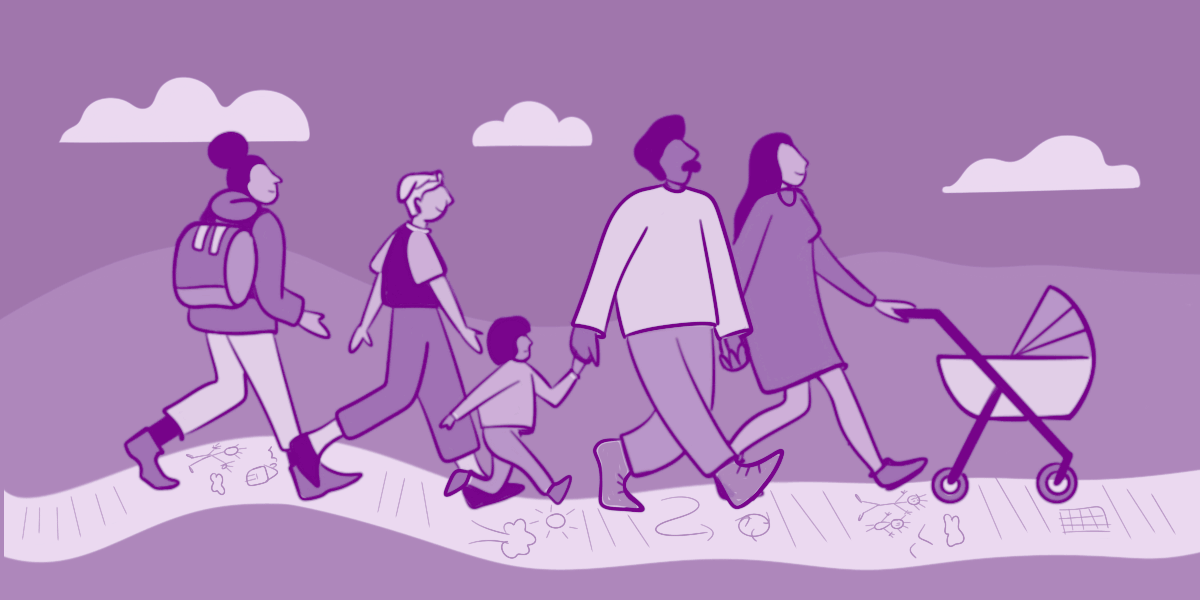Developing outreach strategies for identifying and enrolling residents eligible for tax credits in Colorado
State of Colorado Department of Revenue
November 2024 - February 2025
Why This Matters For Families
Across the country, millions of families are living paycheck to paycheck, struggling to afford their basics on low to moderate incomes. To help these families, over 31 states and the federal government have instituted the Earned Income Tax Credit (EITC), which can provide families with thousands of dollars after filing their federal and state taxes. Tax credits have become a critical anti-poverty program in the United States, providing an essential source of cash for many American workers and families.
The 2021 expansion of the Child Tax Credit (CTC) in the American Rescue Plan reduced child poverty in the United States by 40% that year. However, accessing credits like the CTC is notoriously difficult as they are claimed during annual tax filing. The bipartisan, highly successful EITC reaches only 80% of eligible households nationwide, with lower-income, less-educated households being most likely to leave money on the table compared to other populations. The IRS estimates that roughly 20% of EITC-eligible and CTC-eligible individuals do not receive the credit payments they are owed — the federal EITC alone averaged $2,500 per return in 2022.
Implementation Challenge
In 2024, Colorado passed legislation requiring the state to assist up to 100,000 residents in filing or amending tax returns to receive the EITC and CTC they are owed. This legislation is exciting, and presents a novel opportunity to implement efforts boosting uptake of the EITC and CTC, particularly amongst non-filers. The implementation, however, is a wide-open space to operate in. In partnership with the Colorado Governor’s Office, the Department of Revenue, and Colorado Department of Public Health and Environment, the New Practice Lab is working to determine the specifics within the state law, including answering questions around how the state will identify potential non-filers, and what methods they will use to reach out to them. Furthermore, once these non-filers have been contacted, what can the state do to more easily facilitate tax filing for these Coloradans?
Our Approach
The New Practice Lab and the Colorado State Government will work together from November 2024 - February 2025 to develop an implementation plan for Colorado to help residents claim federal and state tax credits in Spring to Fall 2025. Our project has two phases, which will build on the library of knowledge the Lab has established on aiding non-filers:
The first phase of the project is working with the state to refine language they use in letters going out this filing season to non-filers alerting them that they may have tax credits they’re eligible for. Leveraging the Non-filer Landscape Research project, as well as the concurrent user-research sprint happening in Illinois, our team is working with Colorado to shape this year’s outreach. We will also support them in testing the impact of the non-filer outreach. With the letters out, the Lab will aid the state in measuring how many people filed within a month of receiving a letter, or after three, or six months. What methodologies worked best to get people to file?
In the second phase of the project, the Lab will engage various government agencies within the state to understand what data can be shared and used to identify non-filers and potentially pre-populate a tax form, making the process of filing state returns as simple for the end-user as possible. Our cross agency discussions will allow the team to understand the accessibility of information within the state and develop new models for tax filing that can increase uptake of critical tax credits for those who may not otherwise access them.
ORIGINAL OBJECTIVE
Understand best language approaches to take with non-filers to both get them to file and make them aware of tax credit opportunities for which they may be eligible.
WHAT WE’RE PLANNING
Aid Colorado in sending out an initial letter to potential non-filers in February 2025 encouraging them to file taxes.
Support a new state-wide data sharing workgroup of approximately six state agencies to understand the barriers and opportunities to advance benefits-tax data sharing.
ORIGINAL OBJECTIVE
Develop strategies to identify residents likely eligible for tax credits who aren’t receiving them.
WHAT WE’RE PLANNING
Interview and analyze data with various agencies including the Colorado Department of Revenue, the IRS, and the Department of Health and Human Services.
ORIGINAL OBJECTIVE
Improve the process of filing for habitual non-filers
WHAT WE’RE PLANNING
Explore methods to connect Colorado residents with support to facilitate tax filing and access credits.
What We Learned
While this project is still in its early stages, by the end of December, we hope to have draft letters that will be sent out to Coloradans to encourage them to file their taxes and take advantage of their available tax credits.
Next Steps
At the end of our initial engagement in February 2025, we will determine if our continued support would be helpful to Colorado effectively implementing their effort to reach 100,000 individuals who have missed out on the EITC or CTC. If so, we may continue to support Colorado in some capacity through their summer 2025 implementation.
This project will also build on the New Practice Lab’s learnings about how to identify and assist non-filers nationally, that will inform and improve our future efforts to support families in accessing critical benefits and services they are eligible for.





